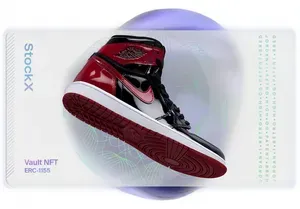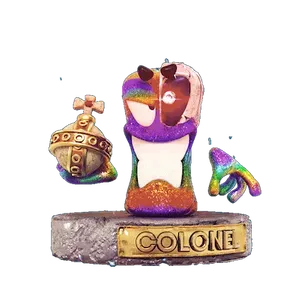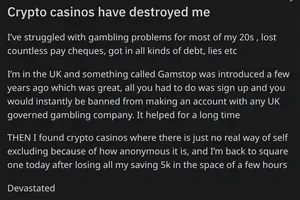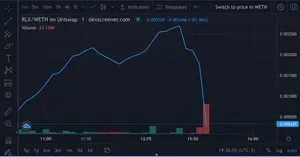This lawsuit is somewhat similar to the January lawsuit by Hermés against artist Mason Rothschild, who has been selling "MetaBirkin" NFTs (though MetaBirkins describes itself as an art project, and promises no physical items).
Nike sues StockX for selling unauthorized NFTs of their shoes
Miami mayor Francis Suarez's MiamiCoin gambit lands the city $5.2 million, investors not so lucky
On February 2, Suarez excitedly announced that they had received their "first-ever disbursement... totaling $5.25M". He didn't mention that the coin is trading at 90% below its all-time-high and 35% less than its initial price of $0.01. Both the OKCoin exchange and the coin creator previously advertised that buyers could earn "430% APY" by participating in some sort of staking program with the coin. All current holders of the coin, such as the Miamians Suarez encouraged to invest, have lost money even when factoring in staking rewards, says Protos.
Wormhole, a cross-blockchain bridge, is hacked for more than $320 million in one of the largest hacks to date
Game studio behind Worms games series does a quick U-turn on their NFT project after massive backlash
HitPiece catches heat for selling song and album NFTs without seeking consent from the artists
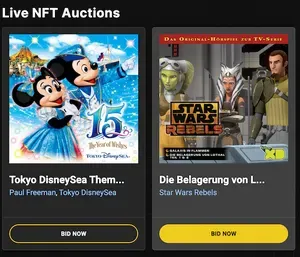 You have to admit they have guts for so prominently listing stolen IP from the notoriously-litigious Disney (attribution)
You have to admit they have guts for so prominently listing stolen IP from the notoriously-litigious Disney (attribution)The project's website writes, "Each time an artist's NFT is purchased or sold, a royalty from each transaction is accounted to the rights holders account." They do not write about how this is supposed to work when the artists have had zero involvement in the NFT being created to begin with, or have no cryptocurrency wallets at all. The FAQ also includes a hilariously handwavy answer to the question most people learning about NFTs have: "What utility does owning an NFT give me?" HitPiece writes, "Artists provide NFT owners access and experiences."
Someone sends COVID-19 NFTs to all ~100,000 active users of the HEN NFT marketplace, whether they want them or not
About 30 posts in a subreddit about gambling addiction mention crypto in the month of January
Regardless of whether they are trying to use blocking software or not, some people in the subreddit appear to be struggling with the challenges presented to them by cryptocurrencies. Some speak about gambling in cryptocurrency casinos, while others have realized that the behaviors that many people involved with cryptocurrencies simply refer to as "investing" are actually manifestations of their gambling addiction. One poster wrote, "Realised yesterday whilst out walking my dog that i'd used crypto as a way to satisfy my gambling urges. I've self excluded from gambling sites for a few years now and managed to taper off. Crypto pulled me back in with trading. I was lying to myself that I was 'investing' so its fine which eventually turned into 24/7 chart watching and leverage trades."
The World Wildlife Fund announces their upcoming NFT project... for nature!
This was not the WWF's first foray into NFTs — the German arm of the WWF released a "Non-Fungible Animals" NFT project in November 2021, which has enjoyed less than $10,000 in trading volume. It also did't appear to be the only project the WWF UK had planned — their NFT website advertised upcoming collaborations with CyberKongz (built on the Ethereum blockchain) and World of Women (also built on the Ethereum blockchain).

